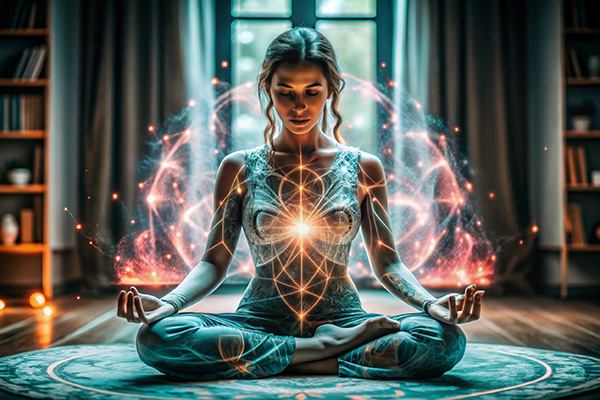self-love
Are You Holding On To A Broken Relationship?
 Are you waiting for him to return to you? Has your break-up stopped you from living your life? Have you decided that no matter what anyone has said to you, that you know that he is coming back to you?
Are you waiting for him to return to you? Has your break-up stopped you from living your life? Have you decided that no matter what anyone has said to you, that you know that he is coming back to you?
Holding on to a broken relationship is a common occurrence in many people’s lives. One person moves on, another does not.
When confronted with this dilemma, you may believe he will be back. I know him; he can’t function without me. He needs me. He knows we are spiritually connected. However, this is often not the truth of the situation. It is simply your ego egging you on to believe what you want to believe.
I usually ask people to go into their ‘gut’ and take the heart out of it. But still I will get, “My gut says he will be back.” This is ego, because the response is so quick and without breathing in and allowing your guides to give you the proper answer.
There are people that have sat around waiting for weeks, months and even years, for that person that they are sure they were destined to be with. Life passes them by and, yet, they remain convinced that the person is coming back against all odds.
Many of their partners move on, some even marry and start a family, and yet, still, the broken-hearted ex-partner waits for them to return.
There is a rule of thumb that goes with a breakup. Every person has to look at the true reason of the breakup, not what they think the issue was, not what they blame the other person for (or sometimes themselves). What is the true reason? Many times it comes down to compromise.
Give Yourself The Grace Of Forgiveness
 If you are an empath you may believe that forgiveness should be easy for you, or at least easier than it is for others. But I’ve spoken to many empaths and highly sensitive people over the years who all struggle with forgiveness.
If you are an empath you may believe that forgiveness should be easy for you, or at least easier than it is for others. But I’ve spoken to many empaths and highly sensitive people over the years who all struggle with forgiveness.
One of the main issues with forgiveness for the empath is that we feel another’s emotions intensely, literally as our own. This muddies the waters considerably, because it tends to blur boundaries. Blurred boundaries can often lead to a closed mouth for an empath. Why? Because it is difficult for us, especially in childhood or in romantic relationships, to know where we end and another begins.
It is easy for others to manipulate appropriate boundaries with an empath, or to erase them altogether. All the empath knows is that there is pain, sadness, a sense of frustration, or anger. If you are an empath, then the question becomes are you angry with them, or yourself? Should you have been able to foresee the catastrophe happening, the relationship ending, job imploding, and so on. This leads to self-doubt and the rehashing of incidents that occurred years ago…with no resolution.
In the meantime, every time an empath thinks about the situation, past or present, we feel it…and the cycle continues.
Yes, you are empathic, intuitive, even psychic, but that does not make you immune to being human, neither does it make you all-knowing or all-seeing, especially when it comes to your own life, childhood or relationships.
Your Sacred Center Of Self-Love
 We all thrive on being loved. This is natural, of course, if you look back at humanity in history on an evolutionary level. Ancient people came together in tribes, families, and groups, to cultivate a place of safety, security, nurturance, and love.
We all thrive on being loved. This is natural, of course, if you look back at humanity in history on an evolutionary level. Ancient people came together in tribes, families, and groups, to cultivate a place of safety, security, nurturance, and love.
If you were different or stood out in any way, or even left the tribe, you were literally putting your own life at risk. This topic can be viewed from so many arenas, including psychological, spiritual, scientific, and psychic.
I often wonder how and when did we start defining ourselves by how others felt about us, and why did we believe that other’s thoughts about us were true? At what point in time did we allow others to define us? It’s as though we as humanity went into a deep trance.
We all know the phrase, “Love thyself first”. When did we forget this vital piece of information?
There are many ways we can come back in touch with this essential truth, but for the most part, our society does not support a lifestyle that would naturally lead us back to our sacred center of self-love.
How often do you take a moment to look in the mirror, or tell yourself, “I love you?” Most of us feel silly doing this, but it is very healing.
Have you ever met an older person who behaves in ways that are foolish or who just doesn’t give a hoot what anyone else thinks? My paternal grandfather used to throw dinner rolls across the table at me in fancy restaurants. While my parents and other family seated at the table would roll their eyes at my Grampy, I used to laugh hysterically!
The Empowered Empath’s Guide To Spiritual Self-Care
 Empaths, sensitives and intuitives tend to be givers. Loyal, sometimes to a fault, and fiercely protective of those they care about… moving at lightning speed whenever called upon.
Empaths, sensitives and intuitives tend to be givers. Loyal, sometimes to a fault, and fiercely protective of those they care about… moving at lightning speed whenever called upon.
So, when I say to an empath that it may be time to put themselves first, the response is often mixed.
But, if putting yourself first seems too selfish or too difficult, try something simpler: at least put yourself on an equal footing with those you love and care for.
For many sensitive and highly intuitive people, self-care must be an acquired behavior… and it’s a big one. Empaths intend to be selfless, to help, heal and facilitate those they care about. Wonderful!
But remember, if this is your goal, then begin with yourself. The stronger, healthier and happier you are then the more effective, nurturing and supportive you can be to those around you.
Putting yourself first doesn’t mean that you are doing only what you want to do all the time, and it doesn’t mean that you are suddenly going to ignore those you care about.
What it does mean is making it a priority to take care of your own physical, mental, emotional and spiritual needs. This can be a tall order and quite the task for some empaths. Don’t wait until you are in a meltdown… frustrated and snapping at everything and everyone around you, with little or no provocation.
Why Curiosity Is Essential For Spiritual Growth
 These days, it is customary to access information instantly using various modern technologies. All kinds of knowledge are at our fingertips whenever we need it.
These days, it is customary to access information instantly using various modern technologies. All kinds of knowledge are at our fingertips whenever we need it.
While some research is required for school or work projects, and other inquiries are made to simply satisfy a general “need to know,” Spirit challenges us to view our world differently and conduct a different kind of search.
Take time to be still every now and then. Extend your curiosity internally. Go within and take time to reflect on your past decisions, your current situation, and your potential future.
The past is a wonderful place to visit to reminisce about great experiences, evaluate decisions, and learn from events.
Note: This must only be temporary. It does not mean that you should constantly “live” in the past or obsess over what might have been, because there is no present or future in the past. There are only lessons and insight to be found there.
When considering some of the questionable choices you may have made in the past, be kind to yourself as you ponder the decisions you made and why you made them. Remember that your younger self did not have the benefit of the experience, wisdom, and insight that you have now.
Also, be kind to others who might have influenced you in a negative fashion or hurt you to the core, whether it seemed to be intentional or not at the time. Understand that their chosen paths may have intersected with yours for a specific reason but that you now have the ultimate control over your present actions and future dreams.
The Secret To Manifesting An Abundant Life
 Many questions I am asked in psychic readings have to do with why someone’s life has not changed to what they want it to be.
Many questions I am asked in psychic readings have to do with why someone’s life has not changed to what they want it to be.
Some people feel they have religiously applied the teachings of Abraham-Hicks, or they closely followed the guidelines of the book The Secret by Rhonda Byrnes, or one of the many other popular methods for manifesting through the Law of Attraction, but nothing has changed.
And when I ask these people what they have changed in their inner being or subconscious mind to allow the new to come in, often I receive the response, “Oh, I have already done all that!”
However, had the person ‘done all that’ they would be manifesting their intentions. But they are not.
Some steps on the way to manifesting a better life may seem redundant – especially the detail work, the forgiveness and releasing, and the simply believing that it can come… and not specifically in the way that the person has set out in their mind.
Too often the person that is trying to get ahead in life, however, always struggles with money, or has it in their mind that they have to work 80 hours a week instead of 35 to get what they are seeking. That is not allowing, that is trying to make it happen in their way. And yet the answers are so much simpler.
As I look at love, finances, work, material items, health, I see the world is in a state of turmoil for the most part. I see bad things happening to good people, and those good people simply giving up hope. And then I see the ones that are constantly growing and getting further ahead without much effort.
 There are angels and spirit guides that work with us daily. They change at times, depending on what we need. They are always within reach and can hear our requests, our tears, and our laughter. They feel our sadness and joy.
There are angels and spirit guides that work with us daily. They change at times, depending on what we need. They are always within reach and can hear our requests, our tears, and our laughter. They feel our sadness and joy.